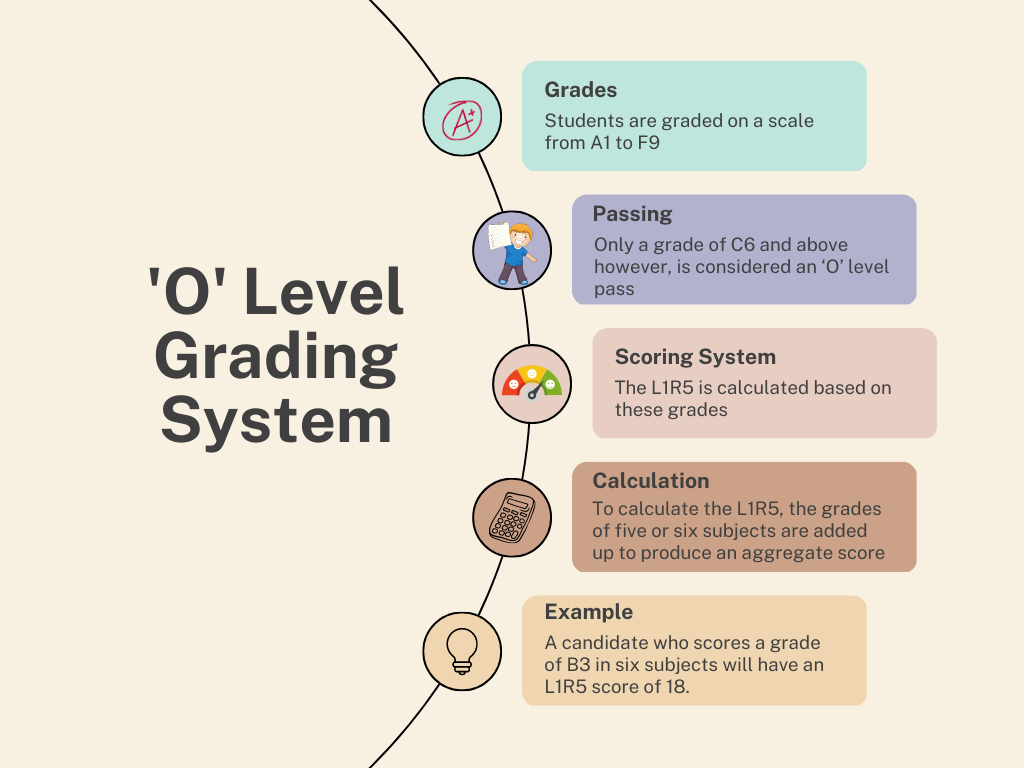"Which path will work out best in the long run, IP, IB or 'O' Levels?"

Today, Singapore is known for its world-class education system. During the 1950s and 60s however, Singapore banked on a ‘survival-driven’ education system in order to generate a skilled workforce for the nation’s industrialisation push. We have come a long way since then, and there are now multiple pathways to a promising future.
The Cambridge ‘O’ Level/SEC Programme
The ‘O’ Levels have been offered in Singapore since 1971. It is considered a traditional path with rigorous academic demand.
Indeed, the majority of Singaporeans have gone through this particular exam and gone on to obtain acceptance into higher education institutions with ease.
The Cambridge ‘O’ Levels are widely recognised by both universities and employers internationally as evidence of excellent academic achievement.
Students are allowed to take up to a maximum of 9 subjects, and a minimum of 6.
From 2027, students will sit for the Singapore-Cambridge Secondary Education Certificate (SEC) examinations. There will be no change to the existing syllabus and examination format, beyond the regular updates that occur for each subject. The SEC exams will still be examined and awarded by Cambridge, as well as MOE and the Singapore Examinations and Assessment Board. The difference between the current format and SEC is that students will be taking subjects based on their strengths in each subject, and not based on a stream as is the case today.
Grading is carried out as follows.

What Type of Student Would Enjoy the ‘O’ Level/SEC Programme?
The ‘O’ levels are considered the ‘traditional’ or ‘safe’ route by many, and in terms of opening up opportunities for higher education, it certainly is.
Many consider the programme to be content heavy with a focus on grades and academia, but schools and educators today have a variety of tools and resources in order to bring out the best in every student.
Students will have to take ownership of their education, learn how to take notes, condense and summarise their own learning.
Students who enjoy the ‘O’ level programme are driven by their interests, are determined to succeed and are willing to take risks, fail and learn from their mistakes.
The Integrated Programme (IP)
The Integrated Programme (IP) was introduced in 2004 in only 8 schools. It caters for high-ability students in Singapore at the secondary school level. Instead of taking the GCE Ordinary Level (O-level) exam in Sec 4 or Sec 5, they will take the GCE Advanced Level (A-level) exam or the International Baccalaureate (IB) after six years of secondary education.
The IP is offered in the following 17 schools at the time of writing:
What type of student would enjoy the IP programme?
Academically, the IP is targeted at the top 10% of scorers in each PSLE cohort. The programme provides students with space to learn beyond textbooks and explore their interests in depth. Not having to spend 4 years in preparation for the ‘O’ levels allows for the time needed for students to delve deep in both academic and non-academic areas.
Schools offering the IP have the freedom to implement curriculum that imparts critical and analytical thinking skills, character building and leadership development.
Students who do well in the IP tend to be disciplined, motivated learners who are capable of keeping track of their own goals and progress. They truly enjoy school, learning and new challenges.
The International Baccalaureate (IB) Diploma Programme
The International Baccalaureate (IB) was founded in 1968. It offers a rigorous educational programme which is internationally lauded and renowned for its propensity to cultivate global citizens.
Creativity and the imagination are at the heart of the curriculum and students explore global issues with compassion as well as intellectual curiosity. Students don’t just learn, they also learn how to learn and are encouraged to excel both in their personal and academic lives.

6 subject groups form the IBDP: studies in language and literature; language acquisition; individuals and societies; the arts; mathematics; and the sciences. Students choose courses from these six groups, although choosing a subject from ‘The Arts’ is not always compulsory, depending on the school. Other subjects include Theory of Knowledge and Extended Essay.
The IBDP is offered at the secondary level in the following 5 schools (local) at the time of writing:
| Anglo Chinese School (ACS) Independent | SJI International |
| Hwa Chong International School | School of the Arts (SOTA) |
| Anglo Chinese School (ACS) International |
A total of 28 schools (both local and international) currently offer the IBDP in Singapore.
What type of student would enjoy the IB programme?
Any student would benefit from the breadth and unique approaches to teaching which are available in the IBDP programme.
Perhaps one way to consider if you would thrive in the IB programme is to compare exam conditions. ‘O’ and ‘A’ level exams can be content heavy and grade focused, whilst IB students are graded on other assignments as well prior to the final exam.
About 70 to 80% of the final grade is determined by the final IB exams, giving some breathing space for students to work more gradually on achieving a desired grade.
The IB programme is thus suitable for students who are adept at time management, enjoy learning independently and conducting research.
Looking for Help with Some Subjects?

Curio offers English Language, English Literature and General Paper group tuition in online classes. We cover the ‘O’ level, ‘A’ level and the new Singapore-Cambridge Secondary Education Certificate (SEC) which is to be offered in 2027. We also teach students in the Integrated Programme (IP) be it English, Literature or Language Arts.
Beyond online group sessions, Curio also offers a unique Marking and Feedback programme for individual, independent learners. Students receive personalised worksheets on a weekly basis. Upon completion, Curio teachers will mark and provide personalised feedback. Curio teachers are also available via whatsapp and email for questions on anything related to the subject. Many of our students thrive from not having to block out time to attend weekly lessons, but still have the benefit of a Curio coach’s nurturing and experience.
To find out more, call or get in touch with us on whatsapp at 8892 2948. We are also available on email: [email protected].



















